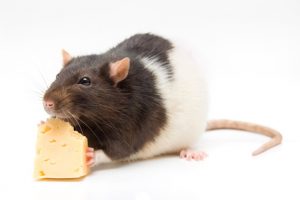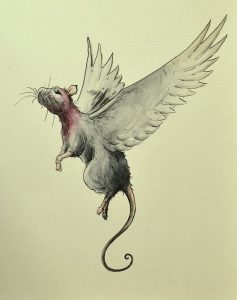Tiffany Wong of Fox 8 reports a video of rats dashing around a French Quarter restaurant is getting a lot of attention online.
 Pest control experts say it’s a common sight this time of year, and businesses can take preventative measures.
Pest control experts say it’s a common sight this time of year, and businesses can take preventative measures.
The Facebook video shows several rats scurrying over counter tops, a cutting board and plates after-hours in the eatery. Some seeing the video for the first time say it’s no big deal.
“I would take that with a pinch of salt. I mean, it is what it is. I wouldn’t worry about that. I would just go somewhere else, I’d walk by,” Sylvia Currie said.
“I mean, we live by the river. There’s river rats, and I’ve been to a restaurant that has like, you see a rat running back every now and then,” Stephen Medina said.
Others, however, say there’s no way they’d eat there.
“We’re spending our good hard-earned money and actually bringing our families here to eat, and that type of distraction I think would be a real big turn off to people,” John Haluska said.
The State Health Department said they would address the issue if they knew which restaurant it was.
“Showing us the video of the rodents, yes, that can be shocking, that can be oh my goodness. It’s a shock value, but you’re not being helpful. You need to tell us where it is and then we can go in and do what we do,” said Tenney Sibley with the State Health Department.
The department said it regularly inspects restaurants, depending on their risk factors.
“If we’re doing a regular, a routine inspection and we come across rodents or rodent droppings, or some kind of indications there are rodents, absolutely. That’s what we would call a critical violation,” Sibley said.
Patricia Talorico and Meredith Newman of Delaware Online report a video of rats scurrying among among hamburger buns at a Brandywine Hundred Burger King led to the eatery’s closure Friday and over the weekend “due to gross unsanitary conditions.”
The video was posted at 7:53 p.m. May 31 by Wilmington resident Shantel Johnson on her Facebook page. It’s unclear how Johnson obtained the video at the store at 2802 Concord Pike.
Her post said: “Don’t go to Burger King on 202 (rats are) running all over their buns … (at) Wilmington Delaware Concord Pike.”
The state Division of Public Health Office of Food Protection received a complaint on June 1 and video footage appeared to show rodents in bags of rolls at the Burger King at 2802 Concord Pike, according to Andrea Wojcik, spokeswoman for the Division of Public Health.
State health inspectors went to the restaurant at 11:45 a.m. June 1 to conduct a visual inspection of the premises and the complaint was founded, according to a report.
According to the inspection report, rodent droppings were found on and inside of the hamburger and chicken sandwich rolls. The plastic covering and the rolls themselves were chewed by the rodents. Wooden pallets that the rolls were stored on had droppings on them, the report said.
Droppings also were found in the floor near the ice machine, the water heater, under dry storage, near syrup storage boxes and behind fryers, the report said.
Seven pallets of buns and rolls were discarded due to the contamination, the report said. The inspector noted that during her visit, chicken sandwich rolls were being used. They were then discarded.
In addition to the rodent droppings, the restaurant’s ceiling was leaking in the kitchen near the storage and food line, the report said. Flies were coming from a drain close to where the rolls and buns are stored.










